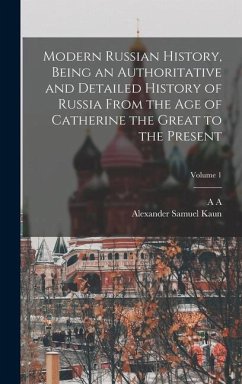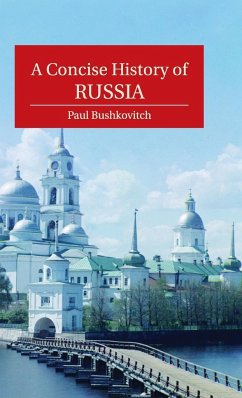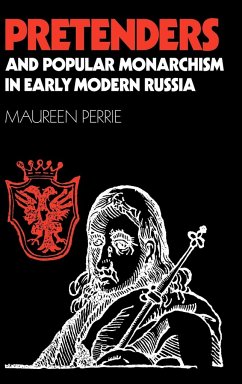
Reform in Modern Russian History
Progress or Cycle?
Herausgeber: Taranovski, Theodore; McInerny, Peggy; Hamilton, Lee H.
Versandkostenfrei!
Versandfertig in 1-2 Wochen
85,99 €
inkl. MwSt.

PAYBACK Punkte
43 °P sammeln!
This volume provides a comparative study of the problems and prospects of reform in modern Russian history. Drawn from contributions to a conference sponsored by the Kennan Institute for Advanced Russian Studies of the Woodrow Wilson International Center for Scholars, the book raises important methodological and historiographic questions regarding the content, scope, and significance of various reform efforts, ranging from the Great Reforms of Tsar Alexander II to attempts undertaken by Khrushchev and Gorbachev to salvage the Soviet system. One of the recurrent themes raised is whether these a...
This volume provides a comparative study of the problems and prospects of reform in modern Russian history. Drawn from contributions to a conference sponsored by the Kennan Institute for Advanced Russian Studies of the Woodrow Wilson International Center for Scholars, the book raises important methodological and historiographic questions regarding the content, scope, and significance of various reform efforts, ranging from the Great Reforms of Tsar Alexander II to attempts undertaken by Khrushchev and Gorbachev to salvage the Soviet system. One of the recurrent themes raised is whether these attempts to modernize the political and social system were a cyclical series of failures or demonstrate a pattern of progressive development. Reform in Modern Russian History favors the latter interpretation and provides an excellent background for all who want to understand the shape of modern Russian history, the significance of Gorbachev, and the roots of contemporary Russian politics.














